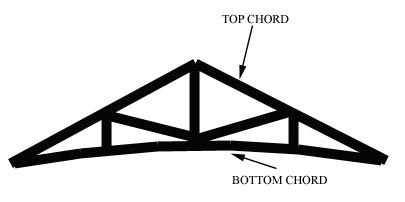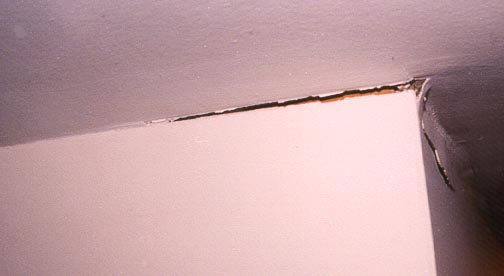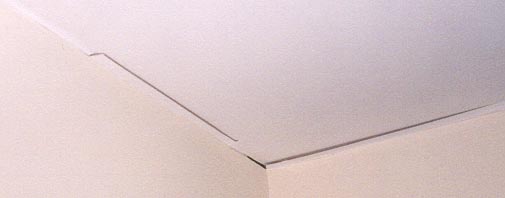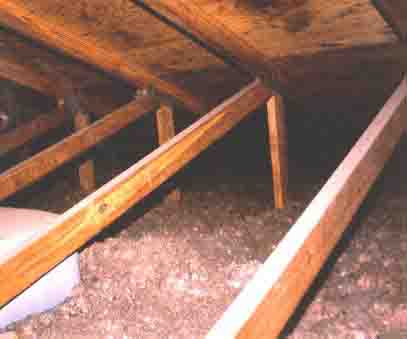WALLBOARD CRACKS FROM TRUSS UPLIFT
By
Charles C. Roberts, Jr., Ph. D., P.E.
A typical, cost effective roof framing concept for residential buildings is the wooden
roof truss shown in Figure 1. A problem that can occur with this system causes
cracks in wallboard over time. In recent years, attic insulation usage has increased,
which ends up covering the bottom chord of the truss. This tends to keep the
bottom chords warm and dry while the top chords absorb moisture and expand.
The top cord expansion causes the top chords to lift, pulling up the bottom chord
as shown in Figure 1, hence the term truss uplift.

Figure 1

Figure 2
The wallboard crack shown in Figure 2 is the result. This will typically occur in the
middle of the truss span since that is the area of maximum upward deflection. As
can be seen, the ceiling wallboard is raising upward and cracking the taped joint.

Figure 3
Figure 3 is another example in the same home showing the ceiling wallboard lifting
upward and tearing the taped joint.

Figure 4
Figure 4 shows the roof trusses and the bottom chords covered with approximately
10 inches of insulation. Wood is hygroscopic in that it absorbs and releases
moisture under various conditions. Because the bottom chords are nearer the living
space and covered with insulation, the wood is drier than in the top chords, which
are often exposed to higher humidity and condensation in winter. As the upper
chord expands and lower chord shrinks, the uplift occurs. In the summer, the
process reverses with the top chords shrinking and the bottom chords expanding.
This causes long term deflection cycling throughout the year, inducing unsightly
cracks in the wallboard. Many framing contractors are aware of this problem and
reduce the chance of drywall damage through various buffer construction
techniques. Older homes that have not experienced truss uplift may encounter the
problem when insulation is added that covers the bottom chords.
FOR TECHNICAL ARTICLES CONTACT CLAIMS MAGAZINE AND ASK
FOR A REPRINT OF A PAST TECHNICAL NOTEBOOK ARTICLE
CLAIMS MAGAZINE





